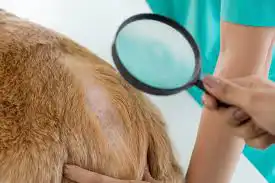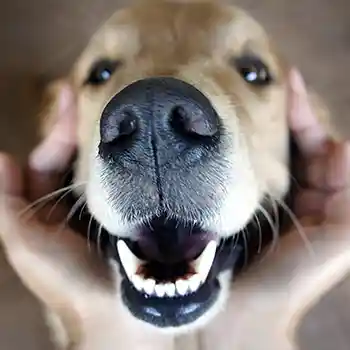Ringworm Prevention Checklist
Maintain Good Hygiene and Cleanliness.
Frequently clean and disinfect areas where your dog spends time. Wash your hands after handling your dog.
Healthy Skin and Coat.
Regular brushing and bathing help keep your dog's coat and skin healthy, reducing the risk of fungal infections.
Balanced Diet.
Providing a balanced diet rich in essential nutrients helps maintain your dog’s skin and coat health, which can be a natural barrier against infections.
Minimize Exposure to Infected Animals.
Isolate Infected Animals. If you know an animal has ringworm, keep your dog away from it. Ringworm is highly contagious.
Careful Interaction.
Be cautious when introducing your dog to new animals, especially in places like dog parks, kennels, or grooming salons.
Regular Veterinary Check-Ups.
Vet health assessments can help identify and address any skin issues before they develop before ringworm becomes severe.
Enviornmental Control.
Regularly clean and disinfect your home, particularly areas where your pet spends a lot of time.
Control Humidity.
Fungi thrive in moist environments, so keeping your home dry and well-ventilated can help prevent the growth of fungal spores.
Limited Contact with Stray Animals.
Stray animals might be more likely to carry ringworm. Limiting your dog's interaction with them can reduce the risk of infection.
* Google trends are rising for ringworm on dogs. You should practice prevention on a regular basis.

60% of preventing ringworm on your dog involves providing good hygiene, cleanliness and a balanced diet.

40% of ringworm prevention involves enviornmental control, animal interaction, at-risk isolation, and regular vet check ups.

Prevention starts
with one simple click.
View products that will help treat and prevent ringworm on your dog.
Get started




